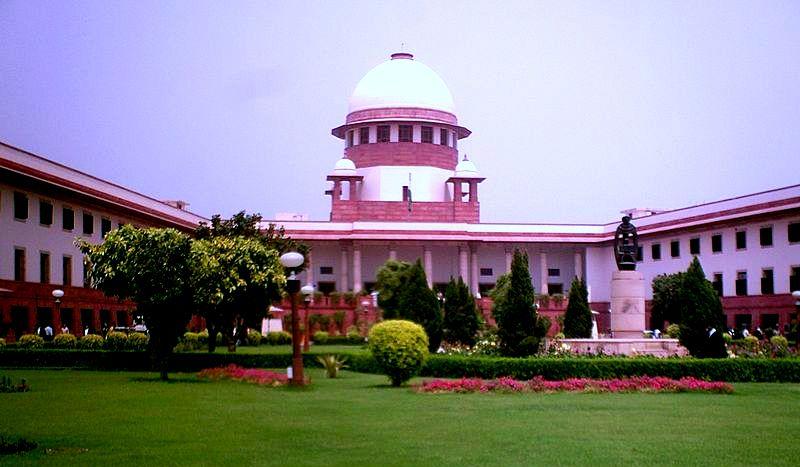SC Strikes Down the Archaic Law on Adultery

The Supreme Court today struck down section 497 of the Indian Penal Code (IPC) and section 198(2) of the Code of Criminal Procedure (CrPC) which deal with the criminal offence of adultery. This provision was challenged, as it was perceived to be one of the lingering archaic colonial era laws that continue to haunt India. The majority Judgement was delivered by Chief Justice Dipak Misra and Justice AM Khanwilkar. Justice RF Nariman, Justice DY Chandrachud and Justice Indu Malhotra all delivered separate concurring Judgements.
Section 497 of the IPC states:
“Whoever has sexual intercourse with a person who is and whom he knows or has reason to believe to be the wife of another man, without the consent or connivance of that man, such sexual intercourse not amounting to the offence of rape, is guilty of the offence of adultery, and shall be punished with imprisonment of either description for a term which may extend to five years, or with fine, or with both. In such case the wife shall not be punishable as an abettor.”
From the outset, one can see that this provision denies agency to the woman. This provision also makes the commission of the offence dependent upon whether the husband of the woman has consented to the act. What this implies is that the woman has little choice in the matter. Further, the provision is designed purely to deal with consensual sexual intercourse – not rape – wherein the consent depends solely on that of the husband. What the provision does not punish as adultery is an act involving a married man and an unmarried woman or a widow. The wife of such a man could certainly be conceived as an aggrieved party.
Under section 198 of the CrPC, a court can only take cognisance of the offence when a complaint has been made to it by an aggrieved party. The provision identifies the aggrieved party as the husband of the woman or the person in whose care the husband has left his wife. When this provision is read with section 497 of the IPC, it cements the woman’s position as that of the property of her husband.
The majority Judgement observed that adultery as a criminal offence no longer existed in most countries. According to this Judgement, the criminal law on adultery, as it stands, is manifestly arbitrary. Apart from treating women as the property of their husbands, the law does not differentiate between cases where adultery is the cause of marital breakdown, and those where it is the result. Accordingly, both section 497 of the IPC and 198 of the CrPC have been struck down.
Justice RF Nariman, in his concurring Judgement, pointed out that this archaic law was made as the majority of the population was Hindu, and until 1955, Hindu men could marry as many women as they wanted. Therefore, if an adulterous relationship involving a married man and an unmarried woman occurred, the man could marry her and render the law redundant. Justice Nariman’s concurring Judgement also struck down 497 of the IPC and 198 of the CrPC on similar grounds as the majority Judgement for violating Articles 14 (Right to Equality), 15(1) (Prohibition of Discrimination) and 21 (Right to Life and Personal Liberty) of the Constitution.
Justice Chandrachud’s concurring Judgement held that section 497 denies equality and perpetuates the ascribed subordinate status of women in marriage and society, hence it violates Article 14. Since the section is based on gender stereotypes – that infidelity is normal for men but not for women – it violates Article 15. According to Justice Chandrachud’s Judgement, the provision also denies individuals dignity, liberty, privacy and sexual autonomy, hence, it violates Article 21. Accordingly, the section was declared unconstitutional.
Justice Indu Malhotra too held section 497 of the IPC and 198 of the CrPC to be unconstitutional on similar grounds. Thus, the Bench unanimously struck down an archaic provision of Indian criminal law that is, in essence, discriminatory on the basis of gender. However, adultery will still remain a ground for divorce.
Get the latest reports & analysis with people's perspective on Protests, movements & deep analytical videos, discussions of the current affairs in your Telegram app. Subscribe to NewsClick's Telegram channel & get Real-Time updates on stories, as they get published on our website.
























